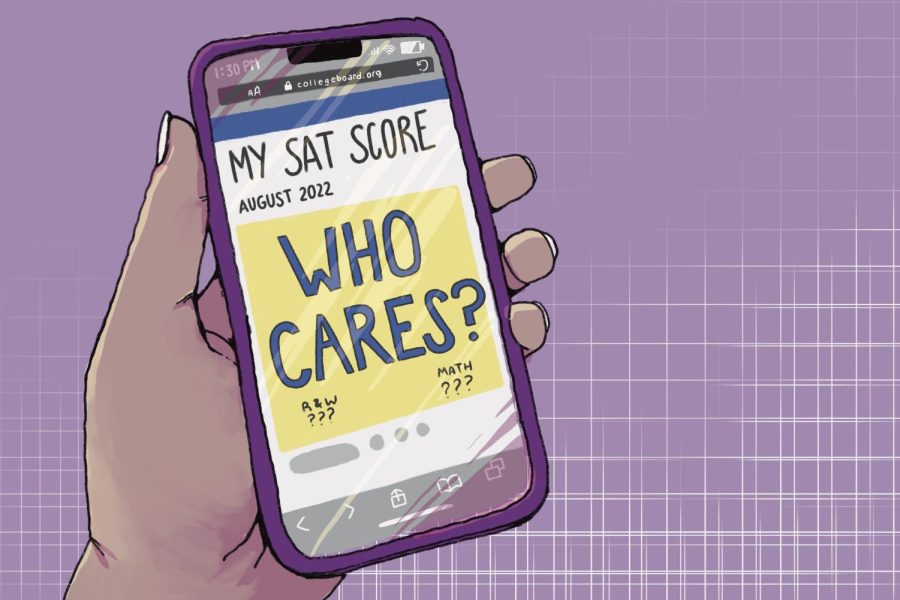Students question impact of NU’s test-optional policies, propose elimination of any score reporting
Northwestern will continue to review outcome data as it considers whether to adopt a test-optional admissions policy permanently.
May 23, 2023
Northwestern extended its test-optional policy through the 2023-24 admission cycle, meaning applicants will not have to submit standardized test scores for the fourth year in a row. But, some NU students are advocating for the University to permanently eradicate score reporting.
Standardized tests have long sparked debates about equitable college admissions, because resource disparities can impact testing results.
The University first enacted its test-optional policy at the beginning of the COVID-19 pandemic to accommodate the risks associated with gathering large groups of students to take standardized exams.
In an email to The Daily, University spokesperson Erin Karter said NU is reviewing outcome data from the current policy as it considers whether to adopt a test-optional protocol permanently.
“With or without test scores, we will continue to evaluate applicants’ academic and intellectual fit for Northwestern as we always have,” Karter said, “through a holistic assessment of grades, course rigor, recommendations, academic honors or awards, personal essays, and other information specific to (their) own experiences and high school setting.”
According to NU’s website, the University will currently “respect” a student’s preference not to submit test scores. But, the policy does not prevent students from submitting exceptional SAT or ACT test scores either.
Students who apply to NU can still be rewarded for submitting strong scores as part of the “holistic” review, according to the University website.
Communication junior Pari Pradhan, who attended high school in the Philippines before coming to NU, said it is “significantly more difficult” for students in the Philippines to access standardized tests. She wants NU to keep a test-optional policy, she added.
“Sometimes, standardized testing can offer some students a solid way of showing their skillset, but I don’t think I would weigh those scores very highly,” Pradhan said. “I would not consider them as strongly as schools do now.”
Pradhan, the president of NU’s International Student Association, said she worries that some students have the finances to access tutors and take the tests multiple times. That can disadvantage students without these resources, she said.
She added this resource disparity means test scores don’t represent an applicant’s intelligence.
SESP sophomore Olivia O’Loughlin said she opted not to submit her test scores because she did not have access to testing sites in her hometown of Philadelphia during the lockdown.
O’Loughlin added that standardized tests “aren’t reflective of everybody’s abilities.” She said she hopes to see them phased out of the college admissions process.
“I know people (who) had a lot of access to tutoring and (preparation) for those tests, and some people that didn’t,” O’Loughlin said. “There’s an economic advantage there, even in having the time to (prepare). If you have to work after school, you can’t go to a tutoring session.”
McCormick freshman Gayoung Kim, on the other hand, chose to submit her test scores. She said she believed the results could only improve her chance of admission.
Still, Kim said she is skeptical about test-optional policies. Instead, she said it would be more equitable to eliminate test scores completely.
“Even if the University says that this test-optional policy won’t hurt if you don’t submit your score, how true can that be?” Kim said.
Email: julianandreone2026@u.northwestern.edu
Twitter: @JulianAndreone
Related Stories:
— State university admissions go test-optional to increase enrollment and diversity
— Northwestern receives historic number of applications as overall acceptance dips slightly to 7%



